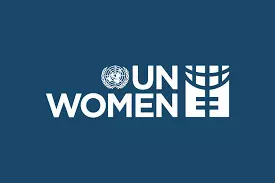
A gender expert, Dominique Kanobaba, says gender data and statistics are lacking worldwide, particularly in Africa, without which women and girls’ needs may be overlooked in policymaking for sustainable development.
Kanobaba, who leadsthe implementation of UN Women’s flagship gender data and statistics programme in the Arab States Region, made this known at a pre-International Women’s Day webinar on Wednesday.
The discussion, organised by UN Women Africa, had the theme “Invest in Women: Accelerate Progress.”
Kanobaba said that in Africa, gender data enabled policymakers and businesses to make evidence-based decisions that increased women’s wellbeing, access to economic opportunities, and overall development outcomes.
According to him, gender data makes invisible women and girls visible and is key to achieving gender equality and empowerment for women and girls around the globe.
“Gender data gaps exist across the world in countries of all income levels, and the data for reporting on Sustainable Development Goals (SDGs) five lags behind all other SDGs.
“Tackling this root cause of the gaps in data and statistics is essential, as it’s building skills and capacity to collect and use gender data.
He said UN Women has been working since 2017 with countries, regional partners, and global partners on mainstreaming gender in their programming, guidance, and tools to improve the representation of women and girls in data and statistics.
This, he said, was being done through the UN Women flagship programme, Making Every Woman and Girl Count.
He said the 2024 International Women’s Day theme, Invest in women: Accelerate Progress, recognised the crucial role of financing in closing the gender gap for sustainable development.
“In the light of the foregoing, on this International Women’s Day, we join other actors in calling for investing in women to accelerate progress, specifically through three points.
“Investing in gender data is a vehicle for driving progress for all, prioritising gender responsive budgeting (GRB), and shifting to a green economy and society.
“With less than six years until the SDG target of 2030, the need to produce relevant and quality data for gender indicators to monitor progress towards the SDGs is greater than ever.
“Investing in gender statistics to close the gaps in adequately monitoring implementation of the SDGs is a fundamental step to improving the lives of women and girls,” he said.
Antonia Ngabala-Sodonon, UN Women’s Special Representative to the African Union Commission, said gender equality was one of the greatest challenges in human rights.
She said reliable data on gender remained the only means to correctly establish the status of women and girls in Africa.
She noted that for UN Women, positive and sustainable improvement of the status of women and girls was very important.
“In terms of statistics worldwide, donors need to provide 100 million dollars per year until 2030 to adequately finance system data that is essential.
“We are committed to continuing to work together with governments, women's organisations, civil society organisations, and all institutions at every level for the empowerment of women and girls.
“Let us remember that investment in women is a matter of human rights,” she said.



